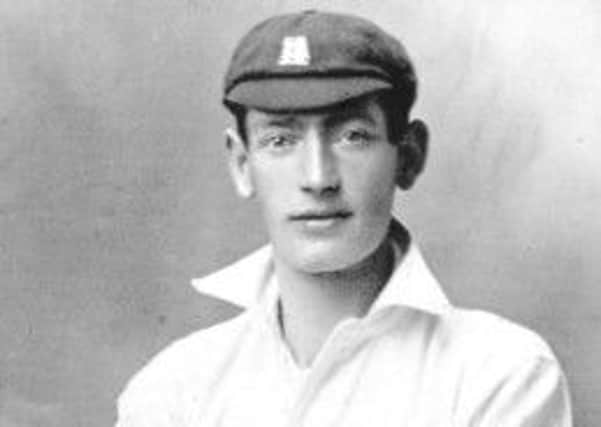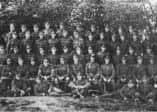WWI centenary: The real Jeeves – Dewsbury fast bowler never knew he gave his name to literary icon


It was a summer’s day in 1913 that young writer PG Wodehouse saw Percy Jeeves bowl for Warwickshire against Gloucester.
Wodehouse was beginning to dream up a series of stories about a peerless valet and his hapless employer and was toying with the name Jevons for one half of his comedy duo.
Advertisement
Hide AdAdvertisement
Hide AdBut the Jeeves name stuck in his mind, as did the all rounder’s immaculate appearance and quiet confidence.


And so Jeeves was born, going on to star in 35 short stories and 11 novels – alongside his foppish master Bertie Wooster.
But as with so many men of his generation, the real Jeeves’ life ended in tragedy on the battlefields of France – and he was never to know he inspired a literary icon.
But he has not been forgotten, as Birmingham-based cricket writer Brian Hardwick has written a book about his life and career, entitled The Real Jeeves.
Advertisement
Hide AdAdvertisement
Hide AdPercy Jeeves was born March 5 1888 in Earlsheaton after his father moved north to find work on the railways.
Earlsheaton was then a busy town with a population of around 5,000, many of whom worked in its three woollen mills, churning out blankets and rugs.
Percy picked up a bat and ball as soon as he was at school. Small but wiry and strong, he had a good eye and timed the ball sweetly. The family moved to Goole in 1901 but Percy’s talent continued to grow.
Percy then moved on to work as a gardener, groundsman and club professional in the North Yorkshire village of Hawes, when he was spotted and signed up by the Warwickshire County Cricket Club secretary.
Advertisement
Hide AdAdvertisement
Hide AdHe later returned to Dewsbury when playing for his new club against Yorkshire.
Jeeves was 25 and tipped as a future England test player when Wodehouse set eyes on him, but his career was cut short when the 1914 cricket season finished. He volunteered for service and was posted to the 15th Battalion Royal Warwickshire Regiment.
His tour of duty took in some of the worst hellholes of the Western Front, ending in a virtual suicide mission when what remained of 15th Battalion were ordered to attack a deeply entrenched German position in High Wood.
His death came just 10 months after the first Jeeves and Wooster short story appeared in the Saturday Evening Post.
Advertisement
Hide AdAdvertisement
Hide AdLike so many others, Jeeves’ body was never recovered, but his name is one of 72,000 others on the Thiepval Monument on the site of the Somme battlefield.
Tributes to Jeeves poured in after his death. As Brian Hardwick explains in his account of his life: “How good a cricketer Percy Jeeves would have been will never be known but he littered his brief time with Warwickshire with enough feats of excellence to suggest that his talent, extrapolated over a full career, would have achieved greatness.”
As Wodehouse explained 50 years after the cricketer’s death: “I suppose Jeeves’ bowling must have impressed me. For I remembered him in 1916 when I was in New York and starting the Jeeves and Bertie saga, and it was just the name I wanted. I remember admiring his action very much.”